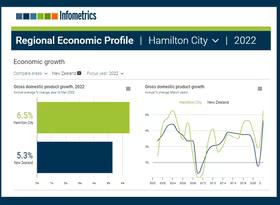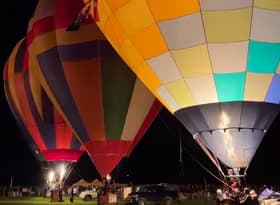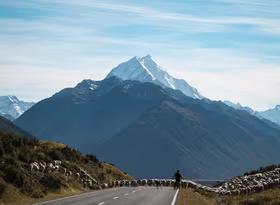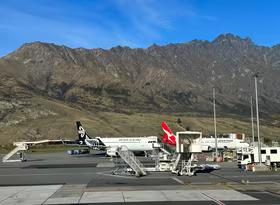Do sporting mega-events chase away tourists?
Enock Mamwambo has been stockpiling goats in anticipation of the Soccer World Cup. He sells his wire and bead animals at the Pretoria Farmers Market and like so many small business owners were hoping for a bonanza from the inflow of tourists. Nearly three weeks into the tournament he has sold only two of the 23 animals he spent six months making.
Some guest houses in Johannesburg have reported having far fewer guests than normal at this time of years. Return flights from Wellington to Johannesburg for the period covering the World Cup were recently available for $1,800 while the usual price is closer to $2,800.
Do these anecdotes suggest that regular tourists have been frightened off by the World Cup? The international literature is giving increasing attention to this issue of tourism displacement. Regular tourists may change their behaviour when a mega-event is held, either shifting their trip to a different time or location. They may be put off visiting a country hosting a mega-event due to concerns of escalating costs, shortages of accommodation and security concerns.
A recent working paper from Stellenbosch University investigates the impact of mega-events on tourist arrivals*. The authors, Fourie and Santana-Gallego, model tourism flows between 200 countries over the period 1995 to 2006. They investigate the impact on tourist arrivals of 18 mega sporting events including the Summer and Winter Olympics, Soccer, Rugby and Cricket World Cups and the Lions rugby tours.
The paper shows that the timing of the mega sports events and country specific characteristics greatly influence their success in increasing tourist arrivals. Generally speaking, events that are held during tourism peak season result in fewer tourist arrivals for the year while hosting the event in the off season has a large positive impact.
The Athens Olympics occurred during peak tourist season and the number of tourists arriving in Greece in 2006 declined by a whopping 30%. The 2000 Sydney Olympics was the standout success among the 18 mega-events, increasing the number of tourists by an astonishing 43%. It’s timing in September, one of the quietest months on Australia’s tourism calendar, was contributor to its success.
However, the Rugby World Cup held in Australia three years later made no positive contribution to tourist arrivals despite being held at a similar time of year. The reasons for the disappointing results are not clear but are probably related to the high levels of tourism the country was already experiencing following the success of the Olympics and that sports fans thinking of visiting Australia had already had their need satisfied. According to the authors there is a lesson here not to 'overindulge’ in mega sporting events.
The research report shows that hosting a mega-sporting event benefits non-OECD countries much more than OECD countries in terms of increased tourist arrivals. This would partly explain the increased bidding and hosting of mega-events as a strategy to improve growth and development initiatives. But politicians who spearhead the bidding are more likely to focus on the benefits of hosting a mega-event than the costs which are also significantly higher in developing countries.
South Africa should be in for a bumper increase in tourist inflows in 2010 on the simple basis that they are hosting the Soccer World Cupping the middle of their offseason and they are a developing country. But concerns around security and the impact of the recession on global travel may override such simple relationships. Anecdotes are inadequate to base conclusions of tourist arrivals and only time will reveal the true impact of the tournament on tourist arrivals.
Next year’s Rugby World Cup in New Zealand is looking promising. The event should be able to trump the success of the 2005 British and Irish Lions tour which was one of the most successful mega-events in terms of increased tourism arrivals. Ticket sales to travel agents for next year’s tournament had already outstripped the 2003 Rugby World Cup 16 months before the opening match. And a conservative approach in which brand new waterfront stadiums were shelved in favour of refurbishing existing facilities should help make it a financial success. It’s up to the All Blacks to make it a rugby success too.
* The Impact of Mega-events on Tourist Arrivals by Johan Fourie and Maria Santana-Gallego







